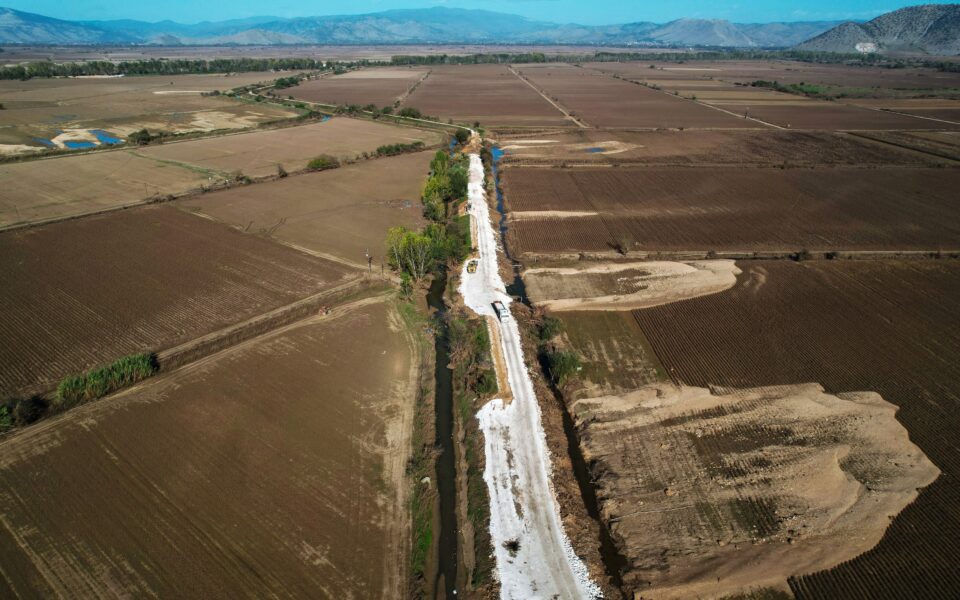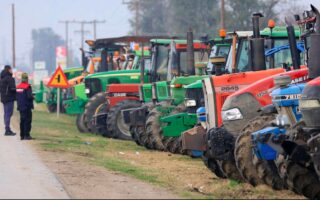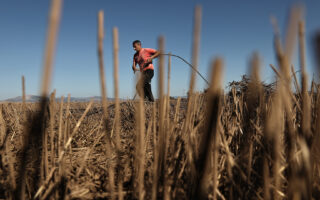Plan to prevent Thessaly desertification
Expert warns the region is heading for an ecological disaster of enormous proportions

The problems posed by climate change are being experienced first-hand in Greece, with scientists raising the alarm that the central region of Thessaly is at risk of desertification.
Speaking to Kathimerini, Miltos Gouzouris, the managing director of HVA international, whose team of Dutch experts have developed the master plan for the restoration of flood-battered Thessaly, said there are many challenges that must be addressed at many levels so the region can shield itself against climate change and move on to the next day of development.
He said the 400-page report that has been delivered to the government contains many different scenarios, all costed. The decline of the water table in the region and the desertification of land has been discussed for at least two decades, but Gouzouris says time is running out.
“As I have been told by expert scientists, if the situation continues as it is, within 15 years the destruction will have taken place and it will be irreversible. And 15 years, you know, goes by very quickly,” he said.
With regard to the proposal to do away with cotton cultivation, which Regional Governor Dimitris Kouretas said is a red line, Gouzouris said it cannot be bypassed because it is one of the largest irrigated crops in the region. “We have to see what we can do with the water we have,” he stressed, adding that having a water balance, water supply and water demand is crucial.
“It must be understood that in Thessaly we are heading for an ecological disaster of enormous proportions. So we are not discussing opinions about what we prefer or would like, nor are we at the stage of ‘it would be better to use less water,'” Gouzouris said.
“We will necessarily have to stop growing some crops that need water. So we propose to stop some crops, not all crops at once and all products. A percentage,” he said.
He also highlighted the significance of food production. “Why not produce food? Why not orient ourselves toward meeting the country’s strategic goals of self-sufficiency? The plan can lead in this effort.
We are not opposed to cotton, we are trying to avoid a very big disaster in Thessaly that will affect not only Thessalians but all of Greece. Imagine if there was a desert in the center of Greece,” Gouzouris concluded.





